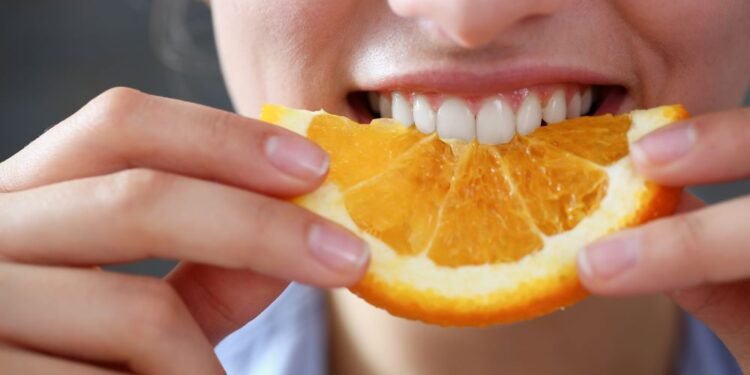What not to eat after teeth cleaning? Experiencing sensitivity in your teeth following a comprehensive dental cleaning is quite common. This temporary discomfort usually subsides as time passes.
Deep cleaning involves the use of local anesthesia around your gum area, resulting in numbness. It’s crucial to wait until this numbness fades before indulging in food, as it prevents accidental bites to your tongue or lips.
To ensure a speedy recovery for your teeth and gums, it’s advisable to avoid certain foods that can trigger pain and sensitivity. In this article, we will discuss what not to eat after teeth cleaning and provide insights on the best post-cleaning diet for a healthier smile.
What Not To Eat After Teeth Cleaning: Foods to Avoid
- Foods that Get Stuck: A significant number of foods possess the potential to get lodged in your gums, leading to irritation and discomfort. Examples include chips, popcorn, nuts, chewy candies, dried fruits, and chocolates. Steer clear of these choices while your teeth and gums are sensitive, as they can hinder the healing process and exacerbate irritation
- Acidic Foods to Be Wary Of: Foods and beverages high in acidity can be harsh on your mouth following deep cleaning. Tomatoes, citrus fruits, pickles, fruit juices, and red wine fall into this category. Even spicy and heavily seasoned foods may trigger discomfort. Opt for a gentler approach during this sensitive phase
- Overly Large Foods: Larger foods like oversized hamburgers may require you to open your mouth wider than usual, potentially straining your jaw. The extra effort exerted while biting and chewing could hinder the healing process. Avoid such foods that stress your teeth and gums, opting for options that are easier on your mouth
Post-Teeth Cleaning Diet: What to Eat
While you may find some foods off the table for a short period, there are numerous options that are gentle on your healing teeth and gums:
- Soft and Easy-to-Chew Foods: Select foods that require minimal chewing and are easy to swallow. This ensures that you don’t inadvertently irritate the treated areas. Some great choices include soups, pasta, softly cooked rice, yogurt, eggs, bananas, and mashed potatoes. These options promote healing without straining your sensitive mouth
- Stay Hydrated: Adequate hydration is vital for the recovery process. Drinking plenty of water helps maintain moisture in your mouth and keeps your body well-hydrated. Be sure to consume water regularly throughout the day to assist in the healing of your teeth and gums
- Don’t Skip Meals: While it’s important to be cautious about your food choices, don’t compromise on your nutritional intake. Skipping meals can negatively impact your body’s ability to heal effectively. Focus on consuming nutrient-rich foods that support your overall well-being
Taking care of your teeth and gums after a deep dental cleaning is essential for a swift and hassle-free recovery. By adhering to a diet that avoids foods causing irritation and sensitivity, you can aid your mouth in healing faster. Steer clear of foods that can get stuck, acidic options, and oversized items that strain your jaw. Instead, opt for soft and easy-to-chew foods that won’t hinder the healing process.
Stay hydrated and ensure you maintain a balanced diet to support your body’s recovery efforts. If you continue to experience discomfort or heightened sensitivity after your deep cleaning, don’t hesitate to seek professional guidance. Remember, the path to a healthier smile begins with making mindful food choices.
Conclusion: What Not To Eat After Teeth Cleaning
In case you’re still facing any lingering discomfort or intense sensitivity after your deep cleaning procedure, feel free to leave a comment below. Our team is here to provide you with further guidance in a straightforward manner, ensuring your post-dental cleaning journey is as comfortable as possible.




